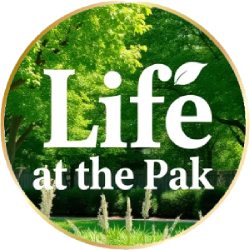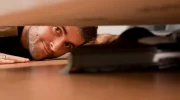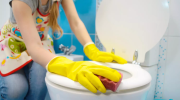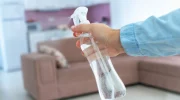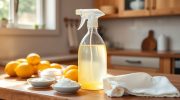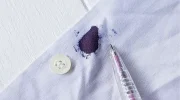A natural and economical cleaner, white vinegar is found in every home. But can you use it for everything? Which surfaces is it not suitable for and what precautions should be taken to use it properly? Here are the mistakes to avoid with white vinegar.
Used throughout the house, white vinegar, also called spirit vinegar, crystal vinegar or colorless vinegar, is composed of water and acetic acid. Made from the natural fermentation of beet sugar, a liter costs less than a euro and the liquid is not harmful to health or the environment when inhaled. Two good points that make it the household’s best friend for almost everything. It has, moreover, long been a well-known trick of our grandmothers.
Its versatility means that it can replace many more expensive household products that are not always harmless to your health, but beware, there are still some surfaces and uses to be avoided.
Cleaning with white vinegar: which surfaces should you avoid cleaning with it?

Although white vinegar is very effective at removing limescale and grease, it cannot be used everywhere in the house. This is because white vinegar can damage certain surfaces or materials. Here is what you should definitely not do with white vinegar:
- Natural stone: white vinegar can damage marble, granite, slate, cement tiles, bluestone and limestone slabs. Its acidity attacks the protective layer and can tarnish or stain these surfaces. Jewelry with precious stones should of course be avoided.
- Wood: Do not use on raw, waxed or varnished wood. It can discolor, leave marks and dissolve the protective layer such as wax or varnish. Therefore, avoid waxed furniture and wooden floors.
- Sensitive metals: avoid aluminum, copper, tin and brass. Vinegar can cause corrosion and oxidation.
- Electronic devices: do not clean the screens of telephones, tablets or computers with vinegar. It can damage the electronic components.
- Appliances: used too frequently, it can damage the rubber seals of coffee makers, dishwashers or irons.
- Tin: be careful with old objects
- Stovetop surfaces: it is tempting to wipe a greasy pan with a sponge soaked in white vinegar, but beware that this can damage the surface, especially if it is made of cast iron, even if you dilute the vinegar.
- Avoid using white vinegar to clean knives or silverware, as this can wear down their surfaces in the long term.
Bleach, bicarbonate: mixtures to avoid for cleaning with white vinegar

Don’t play little chemist with white vinegar, it doesn’t mix with everything.
You should therefore avoid combining it with bleach, as this can create chlorine gas that is toxic to the respiratory tract. You should also avoid the combination of white vinegar and baking soda, which produces a foamy mixture with no effect, because when mixed together, the properties of the products cancel each other out. Other mixtures are very effective, such as using washing-up liquid to clean the bathroom.
Descaling, degreasing: what precautions should be taken before using white vinegar?

The poison control center in Canada reminds us that white vinegar is an aqueous solution of acetic acid and is not without risk because it is corrosive to the skin and eyes! Even if it is natural, white vinegar should not come into contact with the skin or eyes, it should be used with gloves. In case of problems, call the poison control center in your region or the emergency services (15).
Is it bad to breathe in white vinegar fumes?
Breathing white vinegar fumes is not toxic in itself, but it can cause irritation of the respiratory tract, eyes and mucous membranes, especially if the vinegar is used undiluted or heated. It is therefore recommended that you work in a well-ventilated room.

What can you use instead of white vinegar?
Here are some alternatives to white vinegar, depending on how you use it:
- Citric acid: A natural and odorless alternative, ideal for cleaning and descaling. It is economical and ecological.
- Baking soda: Excellent for cleaning, deodorizing and removing limescale. It can be used alone or in combination with other natural products.
- Black soap: Multi-purpose, it is effective for degreasing and cleaning floors and other surfaces.
- Soda crystals: Used to degrease, unblock pipes or whiten laundry.
